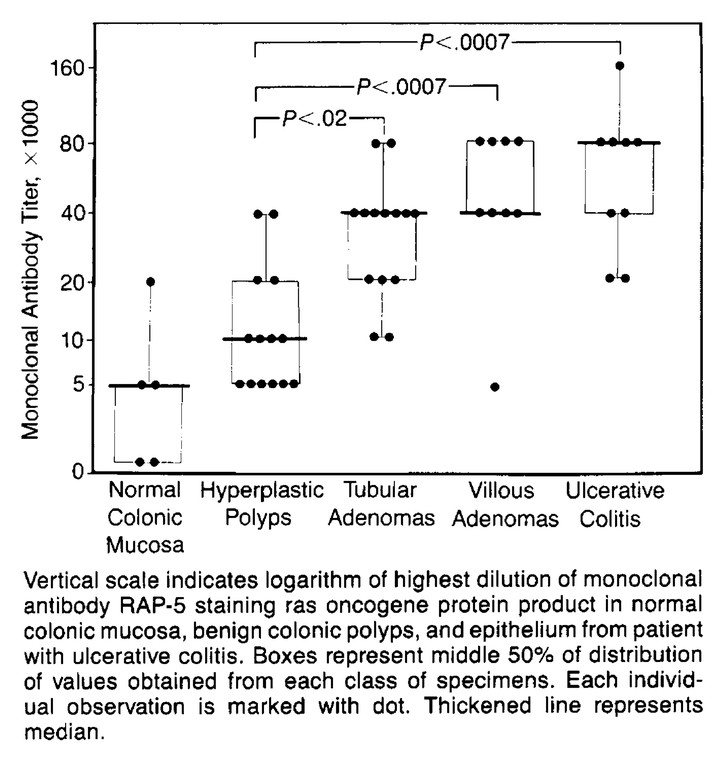Ras oncogene protein p21 levels parallel malignant potential of different human colonic benign conditions

Abstract
Ras oncogenes are a specific family of genes believed to play a role in malignant transformation and tumor growth in humans. To gain a better understanding of the role these oncogenes may play in malignant transformation, we evaluated the levels of a ras gene protein product (p21) in formaldehyde-fixed, paraffin-embedded specimens of normal human colonic mucosa, hyperplastic polyps, tubular adenomas, villous adenomas, and epithelium from a patient with ulcerative colitis. The p21 protein content was measured using the RAP-5 monoclonal antibody in a semiquantitative immunohistochemical assay. The titer value was expressed as the highest dilution of antibody giving definite staining using the avidin-biotin peroxidase method. Differences in p21 titer values among all classes of polyps were significant (hyperplastic polyps values were less than tubular adenomas values, which were less than villous adenoma values). The p21 titers obtained from ulcerative colitis specimens were similar to those obtained from villous adenomas. We conclude that the levels of ras oncogene protein product increase with the malignant potential of benign human colonic conditions. These findings suggest that the ras oncogene protein product may play an important role in the malignant transformation of benign lesions of the human colon. If these findings are confirmed, as technology progresses to allow molecular probes to measure gene products in biopsy specimens, high-risk patients could be monitored and treated before actual malignant transformation occurs.